Adam Fuss has worked as a freelance writer, editor, translator, and communications professional for over eight years. Prior to establishing ABF Communications in early 2008, he worked on a series of assignments in Moscow, Russia as a writer and translator for several high-profile global corporate communications projects. He holds a graduate degree from Georgetown University’s School of Foreign Service.
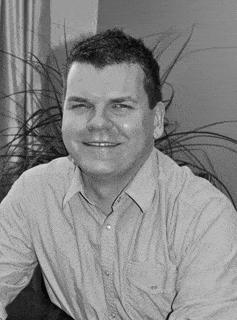
SRAS: First, you have had many years of experience with Russian and Russia – what first got you interested in Russia?
Adam Fuss: It has been 14 years since I started learning Russian (as a third-year undergraduate in 1999), and I honestly feel as though I’m still learning. All told, I spent approximately five years living, studying and working in Russia.
As strange as it may sound, I initially got interested in Russia by way of Latin American studies. After my first year at Boston College, I took part in a 12-day cultural immersion trip to El Salvador. I returned totally committed to focusing my History major on Latin America. My plans were thwarted, however, when I found out that both of the historians specializing in Latin America were on leave for most of the following year. Needing something to fill my schedule, I signed up instead for several courses on Soviet and eastern European history. Those excellent courses, along with a totally chance visit to a performance of Modest Musorgsky’s Khovanshchina at the Metropolitan Opera in New York, pretty much sealed the deal for Russian Studies.
SRAS: You studied at Smolensk State University with the help of a US Fulbright Award. First, would you say that getting the Fulbright was difficult? Second, how would you rate your experience in Smolensk – both educational and cultural?
AF: The difficulty of getting a Fulbright depends on several factors, including the competitiveness of the country in question and how interesting and well developed an applicant’s proposed project is. I believe the acceptance rate for Russian Fulbright student awards is usually around 25%, so it’s definitely more difficult than some countries but much easier than many of the popular western European countries like France or the UK. My application was undoubtedly helped greatly by the fact that I had chosen a location outside of Moscow and, through my undergraduate thesis advisor, had already established strong connections with the university in Smolensk. Regardless of the country one chooses, the process of applying for a Fulbright is long and arduous given the essays and interviews, and, needless to say, the waiting.
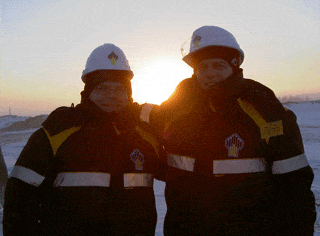
Without a doubt, my experience in Smolensk was the most formative ten months of my life–educationally, culturally, and personally. My project consisted of two main components–continuing work on my undergraduate thesis by doing archival research and taking Russian language and literature courses to improve my command of the language. While the academic experience was certainly useful, learning how to endure the challenges of everyday life, meeting friends at the university and traveling were ultimately what made the experience as powerful as it was.
SRAS: You then went on to graduate from Georgetown University’s School of Foreign Service with a Master’s in Eurasian, Russian, and East European Studies, a program you finished with help from a FLAS Grant. First, would you say that getting the FLAS was difficult? Second, why did you choose to pursue a Master’s in the field that you did?
AF: At the time (2002-2004) there was a significant amount of FLAS funding available for area studies programs like the one I pursued at Georgetown. I don’t remember it being too difficult, as my department was fortunate enough to have secured a considerable level of funding during the time I was enrolled. I believe with the recent cutbacks in education funding, these grants have become considerably more difficult to obtain, however.
My initial plan in getting the Master’s degree was to use it as a stepping stone for a doctoral program in History. I saw an area studies Master’s degree as a good way to get additional exposure to other countries in the region and additional language training, something that wouldn’t have been as easy had I jumped into a Ph.D. program right away. In retrospect, it also gave me time to pursue other opportunities and decide that a career in academia wasn’t for me.
SRAS: Your first job in Russia was with PBN, a well-known business consultancy. First, can you tell us how you found out about that job and second could you tell us what it entailed?
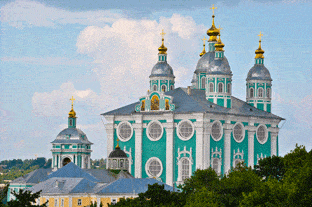
AF: The job at PBN, which technically speaking was my second one in Russia, came about purely by chance. I had been working for several months as a writer and copyeditor for The Moscow Times when, over a coffee break one afternoon, a colleague let me know about an opening at PBN that he had heard about from a longtime friend working there. Initially the job involved serving as the company’s English-language editor, but after a bit of turnover in my department, I was eventually asked to take over management of all translation work. PBN is really where my career both in translation and corporate communications began.
SRAS: Indeed, career growth seems to happen much faster in Russia and opportunities present themselves at much faster rates. So, after several years in Russia, you decided to move back to the US, but you eventually worked there for a Russian company – TMK IPSCO, a major pipe manufacturer with facilities in the US. First, can you tell us how you found out about that job and second could you tell us what it entailed?
AF: As with the position at PBN, I found out about TMK IPSCO purely by chance. Even though I had been back in the states for several years and was happily self-employed at the time (summer 2010), I still frequented a forum for expats in Russia called Redtape.ru, which, by the way, is an invaluable resource for anyone living in Russia or looking to move there. Advertised in the jobs and career forum was a position for translator at a Russian company with offices in Chicago and Houston. I was living in North Carolina at the time, but after pursuing the opportunity, I made the decision to relocate to the Chicago area for the job.
In addition to translation work, my role also ended up involving a lot of corporate communications work, a functional area I had gained significant experience in during my time in Russia. My role was diversified, to say the least, with some days being devoted exclusively to translation work and others to developing and managing an internal communications program for the company.
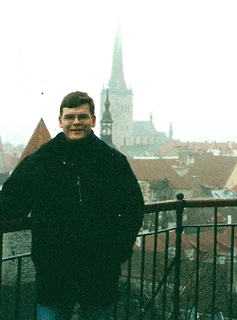
SRAS: And, indeed, the secret to making full use of opportunities is in networking. So now you are fully self-employed with your own business offering translation and editing services. Why did you decide to move to a self-employed position? What are the challenges and advantages of doing so?
AF: As much as I loved the position at TMK IPSCO, especially the opportunities to travel to its steel mills and pipe-making factories, when the company made the decision to move its corporate headquarters to Houston in late 2012, I was unable to accept the offer to relocate. It was during the long transition period that I decided to rebuild the freelance translation, writing, and communications consulting business I had run prior to working for TMK IPSCO.
Being self-employed is certainly not without its challenges, the biggest of which is income instability and the need to devote so much time and effort to marketing and self-promotion. Depending on one’s personality, the isolation caused by working at home, often hundreds or thousands of miles from clients, is another challenge. The advantages are obvious: freedom to work on numerous and interesting projects at the same time and the freedom to set one’s own schedule.
SRAS: You have also joined two professional associations – the American Translators Association (ATA) and the International Association of Business Communicators (IABC). What advantages does membership in these organizations give you?
AF: I chose these two organizations because they really represent my two career paths quite well. The ATA provides some incredibly good networking and educational opportunities, with events like the annual conference serving as an excellent opportunity to interact with other translators. Similarly, IABC offers communications professionals opportunities to participate in various career development activities and networking events. Furthermore, IABC also offers access to a job board that frequently contains positions that aren’t always advertised on other career websites.
SRAS: What is the most interesting experience you’ve had working in Russia or for a Russian company?
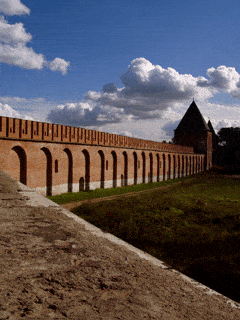
AF: The single most interesting experience came when I was working as a consultant for Rosneft–one position I held in Russia that we didn’t discuss earlier. In the early days of winter, several colleagues and I took a group of journalists to visit the Vankor oilfield in the far northern part of the Krasnoyarsk Territory, which Rosneft was developing at the time. The trip was a whirlwind 24 hours–a five-hour flight each way, several hours on a helicopter and about eight hours on the ground. Since we were so far north and this was early winter, the sun only lingered on the horizon for several hours. The temperature didn’t break -40, which required us to wear special thermally insulated clothing while touring the drill site and other facilities. That brief trip was a first in many ways–my first time in Siberia, my first time in the Arctic Circle, and my first visit to an oilfield. Even more importantly, it also made me realize how essential it is for both translators and corporate communicators to get out in the field and see first-hand how their industries work.
SRAS: That sounds grueling – but it certainly sounds enjoyable to anyone who would brave working abroad! What advice would you give to students thinking about pursuing employment abroad?
AF: Working abroad is often a wonderful experience, but it’s really important to have a plan to make it as beneficial professionally as it is personally. Having a plan means knowing how long you want to stay abroad. If that’s forever, or for the very long-term, that’s fine, but you should be honest with yourself about what that will likely mean professionally. The longer a person stays abroad, the more difficult it often becomes to move back home and start a career there, unless of course one is lucky enough to continue working with the same company. If you only intend to stay abroad for a couple of years, it’s incredibly important to maintain your network at home and acquire skills and experience that are relevant at home. With the exception of those people sent abroad by their employers, virtually everyone I know who has worked abroad has found it much more difficult to get reestablished at home than it was to pursue their overseas opportunities.
Second to having a plan and acquiring the right skills and experience is the need to be incredibly flexible about everything from government red tape to radically different office culture. Rigidness and an inability to go with the flow will make working overseas incredibly difficult, especially in a place like Russia.






